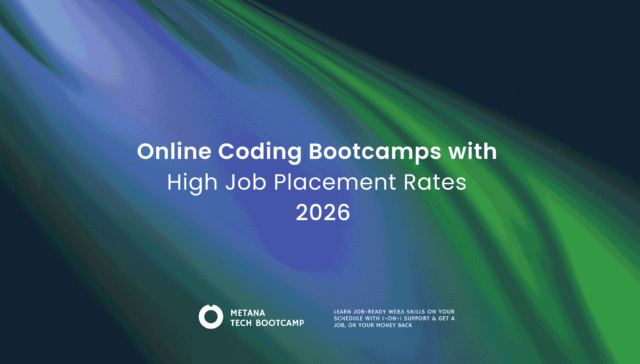Have you ever wanted to make your own website, app, or computer game? Or maybe you’re just curious about how these things are made. Well, all of these are created using something called programming languages. Think of these languages as the special codes that tell computers what to do.
But here’s a question: With so many programming languages out there, what coding language should i learn first? It’s like choosing which instrument to play in a band – each has its own role and sound. In this article, we’re going to talk about ten different programming languages. We’ll look at what each one is good for, like making websites, apps, games, or even working with lots of data.
Imagine this as your guidebook into the world of programming. Whether you’re starting your coding journey, or you’re just curious about what these languages do, this article is for you. We’ll keep things simple and fun, so by the end, you’ll have a better idea of which programming language might be your first (or next) one to learn!
10 Best Coding Languages
1. Python
Python stands out for its exceptional ease of use and readability, making it a favorite among beginners and experienced developers alike. It’s a high-level, interpreted language known for its emphasis on code readability and simplicity. Python uses significant whitespace, which not only makes the code less cluttered but also enforces a neat and consistent coding style. This language is highly versatile, finding its place in web development, scientific computing, data analysis, artificial intelligence, and automation. Its vast array of libraries and frameworks, like Django and Flask for web development, and Pandas, NumPy, TensorFlow, and PyTorch for data science and machine learning, extend its functionality and efficiency. Python’s community is one of its greatest assets, offering extensive support, tutorials, and resources for learners and professionals.
2. JavaScript
JavaScript is the cornerstone of modern web development. As a high-level, interpreted scripting language, it’s primarily known for its role in front-end web development, enabling interactive and dynamic content. But its capabilities don’t stop there; with the advent of Node.js, JavaScript has become a powerful tool for back-end development as well. This means developers can use JavaScript for full-stack development, handling both client-side and server-side scripting. JavaScript’s versatility is further enhanced by its frameworks and libraries like React, Angular, and Vue.js for front-end development, and Express.js for the back-end. Its widespread use and the rise of web-based technologies have made JavaScript an indispensable skill in the developer’s toolkit.
3. Java
Java is a high-level, class-based, object-oriented programming language that is designed to have as few implementation dependencies as possible. It’s widely used in enterprise environments, making it a go-to language for large-scale systems and applications. One of Java’s key features is its platform independence – Java applications can run on any device that has the Java Virtual Machine (JVM) installed. This makes Java extremely versatile and portable. It’s particularly dominant in Android mobile app development, and its robust nature makes it suitable for backend development as well. Java is also known for its strong memory management, which contributes to its stability and reliability. Frameworks like Spring and Hibernate add to its capabilities in web application and enterprise software development.
4. C++
C++ is a statically typed, compiled, and general-purpose language that offers a fine balance of low-level programming and high-level features. It’s an extension of the C language with added object-oriented features. C++ is known for its performance and efficiency, especially in applications where hardware-level manipulation is crucial. This makes it highly suitable for systems programming, game development, and applications requiring real-time physical simulations. It’s also widely used in software development, embedded systems, and high-performance computing. While C++ has a steeper learning curve compared to some other languages, its control over system resources and efficiency in performance-critical applications make it a valuable skill for developers working in these areas.
5. C
C# (pronounced “C-Sharp”) is a modern, object-oriented, and type-safe programming language developed by Microsoft. It runs on the .NET framework, which provides a controlled programming environment with garbage collection and strong type-checking. C# is known for its simplicity compared to C and C++ and is often used for developing Windows desktop applications and games using the Unity game engine. Its integration with the .NET framework makes it a strong candidate for developing robust and secure web applications as well. C#’s language features like LINQ (Language Integrated Query) and async/await for asynchronous programming, along with its powerful tooling, make it a productive and modern language for developers.
6. Ruby
Ruby is a dynamic, open-source programming language with a focus on simplicity and productivity. It has an elegant syntax that is natural to read and easy to write. Ruby is primarily used in web development, with Ruby on Rails being its most famous framework. This framework follows the principles of “convention over configuration” (CoC) and “Don’t Repeat Yourself” (DRY), which streamline the web development process. While Ruby might not have the same performance as some of the more statically typed languages like C++ or Java, its simplicity and the productivity gains it offers make it a popular choice among startups and rapid development environments. Its strong emphasis on software engineering patterns and its vibrant community make Ruby a joyous language for many developers.
7. PHP
PHP is a popular general-purpose scripting language that is especially suited to web development. It’s fast, flexible, and pragmatic, powering everything from your blog to the most popular websites in the world. PHP code is usually processed on a web server by a PHP interpreter implemented as a module, a daemon, or as a Common Gateway Interface (CGI) executable. It’s a powerful tool for making dynamic and interactive web pages quickly. PHP is the backbone of many content management systems, like WordPress, Drupal, and Joomla, and frameworks like Laravel and Symfony, which provide a structured
way to build robust web applications. Despite facing competition from newer technologies, PHP’s ease of use, depth of user base, and rich ecosystem keep it highly relevant in the web development scene.
8. Swift
Swift is a powerful and intuitive programming language for Apple operating systems (iOS, macOS, watchOS, and tvOS). It was developed by Apple with the goal to create the best available language for uses ranging from systems programming to mobile and desktop apps, scaling up to cloud services. Swift combines the best of C and Objective-C, without the constraints of C compatibility. It’s designed to be safe, with syntax that encourages clear, readable code. Swift is constantly evolving, driven by open-source collaboration. It’s not just faster than its predecessor Objective-C; it’s also more expressive and easier to learn, making it a go-to for new developers entering the Apple ecosystem.
9. Kotlin
Kotlin is a modern, statically-typed programming language that enhances productivity and developer happiness. It’s fully interoperable with Java and is designed to run on the JVM, making it a perfect alternative for Java developers. Kotlin is particularly known for its null safety feature, concise syntax, and focus on interoperability and tooling support. It has been officially supported by Google for Android development, and its adoption is rapidly growing in the Android developer community. Kotlin is not limited to Android, though – it’s also being used for server-side development, web development, and even desktop applications. Its concise nature allows developers to write less boilerplate code, which directly translates to fewer errors and higher quality software.
10. SQL
SQL, or Structured Query Language, is the standard language for dealing with relational databases. It allows you to define, manipulate, and query data in a very straightforward and powerful way. SQL is essential in a variety of fields, from web development to business analysis, and is a critical tool for any job that involves working with databases. It works by analyzing and understanding databases consisting of fields of data within tables. Whether you’re managing small-scale data in a local database or dealing with massive datasets in a cloud-based setup, SQL provides the tools you need to retrieve and organize data effectively. While SQL itself does not directly build applications, its role in data handling and retrieval is fundamental in almost every modern software application.

Which Language for Which Tech Task?
This will provide an answer to your question: “What coding language should I learn” according to your career goals
Web Development:
- Front-End: JavaScript (with frameworks like React, Angular, Vue.js)
- Back-End: JavaScript (Node.js), Python (Django, Flask), PHP, Ruby (Ruby on Rails), Java (Spring)
- Full-Stack: JavaScript, Python, Ruby, Java, PHP
Mobile App Development:
- iOS: Swift
- Android: Java, Kotlin
- Cross-Platform: JavaScript (with frameworks like React Native)
Game Development:
- General Game Development: C#, C++ (with Unity for C#, various engines for C++)
- Mobile Game Development: Java (Android), Swift (iOS)
Data Science and AI:
- Python (with libraries like Pandas, NumPy, TensorFlow, PyTorch)
Enterprise Applications:
- Java (with frameworks like Spring), C# (.NET framework)
Systems Programming:
- C++, C
Database Management:
- SQL
Conclusion: Your Coding Journey Awaits
And there we have it – a whirlwind tour through the exciting world of programming languages! From Python’s versatility to JavaScript’s indispensability in web development, from Java’s robustness to Swift’s intuitiveness for Apple apps, each language opens up a realm of possibilities. Whether you’re looking to build dynamic websites, develop mobile applications, create immersive games, delve into the intricacies of data science, or manage complex databases, there’s a language tailored for your aspirations.
Learning to code is a journey of discovery, where finding the right language can ignite your passion and drive your projects. Embrace this journey with Metana’s Full Stack Software Engineer Bootcamp. Designed for both beginners and seasoned coders, our bootcamp offers hands-on, project-based learning to turn you into a skilled software engineer.
Dive into popular programming languages, master industry best practices, and work on real-world projects. With guidance from expert mentors and support from a vibrant community, Metana’s bootcamp isn’t just about learning code – it’s about shaping you into a tech innovator.
Ready to transform your coding dreams into reality? Join Metana’s Full Stack Software Engineer Bootcamp today. Your future in tech awaits!

FAQs
What are the best coding languages to learn for beginners?
- Ideal for newcomers to programming, languages like Python, JavaScript, and Ruby offer simplicity and versatility.
Which coding languages are most in-demand for jobs?
- Languages like JavaScript, Python, Java, and SQL are highly sought after in the tech job market.
How long does it typically take to learn a coding language?
- Learning basics can take a few weeks, while proficiency may require months or years, depending on dedication and practice.
Can learning coding languages improve problem-solving skills?
- Yes, coding enhances logical thinking and problem-solving abilities, key skills in many professions.
Are there any free resources to learn coding languages?
- Websites like Codecademy, Khan Academy, and freeCodeCamp offer free courses in various programming languages.
Can coding skills enhance content creation for digital marketing?
- Coding skills can greatly enhance website customization, data analysis, and automation in digital marketing.
Are online coding bootcamps worth it for learning programming languages?
- Online bootcamps can be a fast-paced, intensive way to learn programming, often with practical, job-oriented outcomes.







